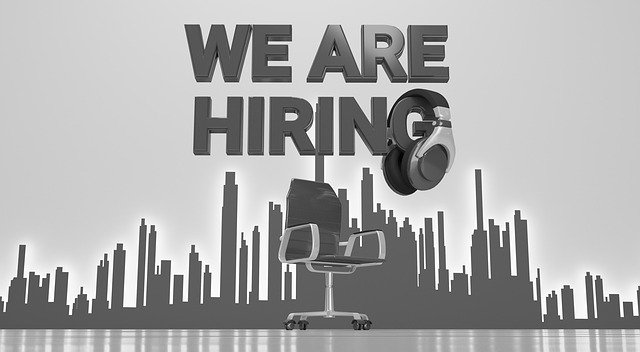How will the end of enhanced UI benefits affect the state’s labor market?
Image by 3D Animation Production Company from Pixabay
@BryanRenbaum
Republicans long argued that the enhanced unemployment insurance benefits that were made available to claimants under the CARES Act discouraged people from returning work, while Democrats often countered that the extra benefits had little or no effect on the job market and were necessary due to the economic devastation brought about by the coronavirus pandemic.
Labor Day marked the statutory deadline set by Congress for the end of enhanced UI benefits and the extra $300 a week that many claimants had been receiving on top of regular UI benefits.
Many states chose to end the extra benefits prior to the statutory deadline fearing prolonged labor shortages. Gov. Larry Hogan tried to do that in Maryland but was blocked by a state court.
Maryland’s unemployment rate is 6%. The national unemployment rate is 5.2%.
Will the state’s unemployment rate go down now that the enhanced benefits are no longer available?
Business leaders told MarylandReporter.com that while that is certainly a possibility, it is important to note the extra benefits were just one of many factors responsible for limited labor participation.
“I am hopeful that the end of the enhanced UI benefits will spark some measurable increase, but I am not naive enough to believe it is a panacea,” Frederick County Chamber of Commerce President and CEO Rick Weldon said. “I think there are several factors that are hindering employment, with the extra unemployment benefits being just one. Access to affordable childcare, pay rates, flexibility and COVID fear are also hindrances to a return to work.”
Weldon noted that employers have been forced to go to great lengths to attract qualified applicants.
“Now we see employers increasing compensation, adding sign-on bonuses, dropping previous standards and taking other steps to increase the potential worker pool. I am hopeful that conditions will improve, but I am also realistic that as long as variants are a large part of our national dialogue, our workforce challenges will continue.”
Washington County Chamber of Commerce President and CEO Paul Frey said certain jobs, particularly those in the hospitality sector, may have changed forever due to the pandemic.
“Hiring will indeed pick up, now that schools are (mostly) back in session and the Covid-19 vaccines are readily available to those who want to be vaccinated. What will change, however, is what jobs will be filled. The food service and hotel jobs will be slower to be filled, and a number of them may never be refilled. Those with jobs available in the area of hospitality will either use technology to replace workers or do more work with fewer employees. Unfortunately, wait times and customer service will likely suffer, and those employees working in the service industries may suffer from burnout.”
Frey added: “Many of those who were laid off due to the initial Covid restrictions in 2020 have chosen not to return to the jobs they previously held, even if their former employer has offered to bring them back. Instead, they are reevaluating their employment options, including changing careers, seeking higher-paying jobs, and pursuing opportunities to work partially or wholly from home. Some previously employed workers are going into business for themselves.”
Howard County Chamber of Commerce President and CEO Leonardo McClarty said changes in certain industries and concerns about the Delta variant have both contributed to limited labor participation.
“I am optimistic that the expiration date of the enhanced UI benefits will help fill open job vacancies, yet the realist in my says, ‘not so fast.’ The reality is that there are some people that remain hesitant to accept certain jobs for fear of the Delta variant or because of available hours and how it works with issues surrounding childcare and transportation. Starting wages have increased beyond minimum wage so compensation is not the entire issue. Ultimately, I think hiring will remain slow. One thing to note and observe will be the adaptation and changes that businesses will make. In some instances, businesses will find a way to move forward, and depending upon the outcomes, some positions may not get filled.”
Maryland Retailers Association President Cailey Locklair said employers are still struggling to fill the many open positions.
“We believe hiring will pick up with the expiration of additional benefits. We would also still like to see previous search for work requirements reinstated too. Employers are still having a hiring crisis that spans all industries and job openings are at record highs. Additionally, employers are offering highly competitive salaries and benefits and have proven over and over again it is safe to return to work.”

MarylandReporter.com is a daily news website produced by journalists committed to making state government as open, transparent, accountable and responsive as possible – in deed, not just in promise. We believe the people who pay for this government are entitled to have their money spent in an efficient and effective way, and that they are entitled to keep as much of their hard-earned dollars as they possibly can.

